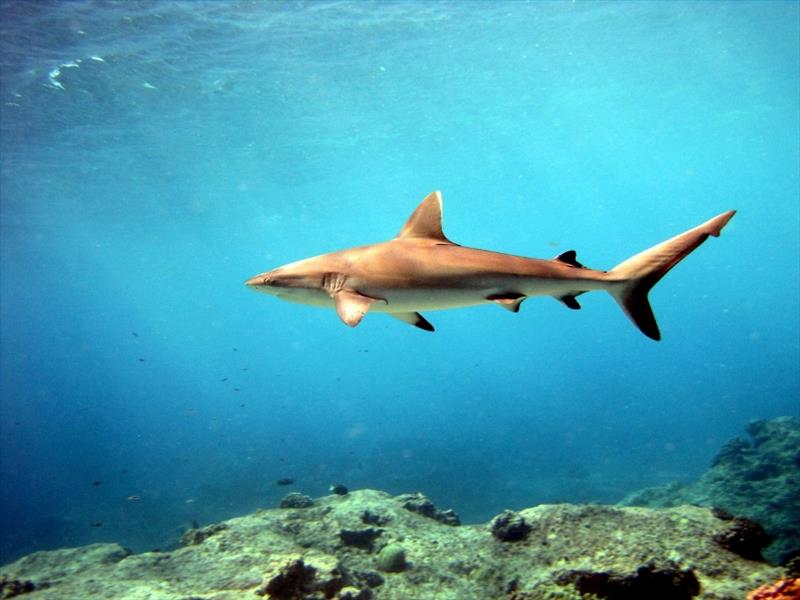
Sharks in catastrophic decline - U.S. Congress needs to take critical action to save sharks now
by Andy Sharpless 18 Mar 2021 18:50 GMT

Sharks don't have bones but they have great eyesight © NOAA Fisheries
Oceanic sharks and rays have declined by at least 71% since 1970, mainly because of overfishing, according to a study published last week in Nature. The study is the first global assessment of its kind, and authors suggest the collapse in shark populations could be even more extreme because of incomplete data and the already increasing fishing pressure prior to 1970.
"The findings of this paper are horrifying but ultimately not that surprising," Oceana Marine Scientist and shark expert Mariah Pfleger told The Guardian. "We have long known that many species of sharks and rays cannot withstand extensive commercial fishing pressure."
More than three quarters of oceanic shark and ray species are now threatened with extinction. In just half a century, humans have increased fishing pressure 18 times over and precipitated the crash of our oceans' apex predators. Now, entire marine ecosystems and the food security of seafood-dependent peoples stands at risk.
Before giving in to despair, know that together we can still avert disaster. "There is a very small window to save these iconic creatures," said Nathan Pacoureau, a marine biologist at Simon Fraser University in Canada and the study's lead author, to the New York Times.
This new study makes it clear that it is critical that governments take action now to reduce the demand for shark products, including the historic driver for overfishing, shark fins, before it is too late.
On January 3, 2021 - the closing day of the 116th United States Congress - the U.S. Shark Fin Sales Elimination Act of 2019 (H.R. 737/S.877) listed 333 cosponsors across both chambers and had passed the House of Representatives with a strongly bipartisan vote. Additional supporters of bans on shark fin sales included 13 U.S. states, 3 territories, 47 airlines, 22 shipping companies, 15 major corporations and almost 700 U.S. businesses and organizations. And, according to a 2016 national poll, 8 in 10 Americans support a national ban on the buying and selling of shark fins. Despite this widespread and bipartisan support, the bill failed to pass the Senate, and we now await its reintroduction.
Why did the bill fail? Because Senator Marco Rubio (R-FL) blocked it. Senator Rubio decided it was more important to help a few shark fishers rather than remove the United States from the fin trade (or to listen to the majority of his own constituents).
Florida generated more than $221 million in revenue and fueled over 3,700 jobs in 2016 related to shark tourism, according to an Oceana study. On the other hand, the total U.S. shark fin export market was valued under $1 million that same year. For some reason, Senator Rubio failed to recognize that sharks are worth much more - to Floridians and all of us - in the ocean rather than in a bowl of soup.
We need your help now to push through a nationwide ban on the trade of fins in the U.S. If you are a Florida resident, please call Senator Rubio and ask him to do the right thing. If you aren't a resident of Florida, I encourage you to also contact your members of Congress and ask her or him to support the passage of a fin ban now.
Our small window of time to save sharks is closing, we need to act now.